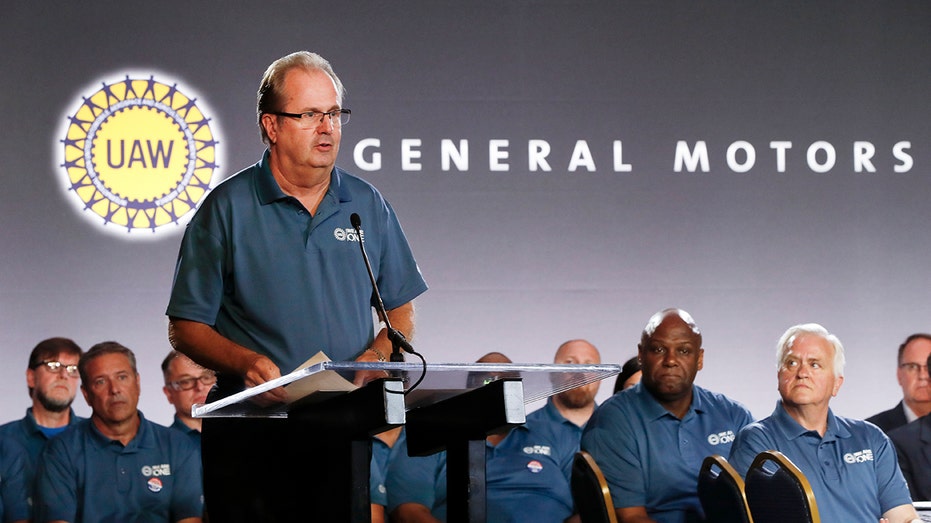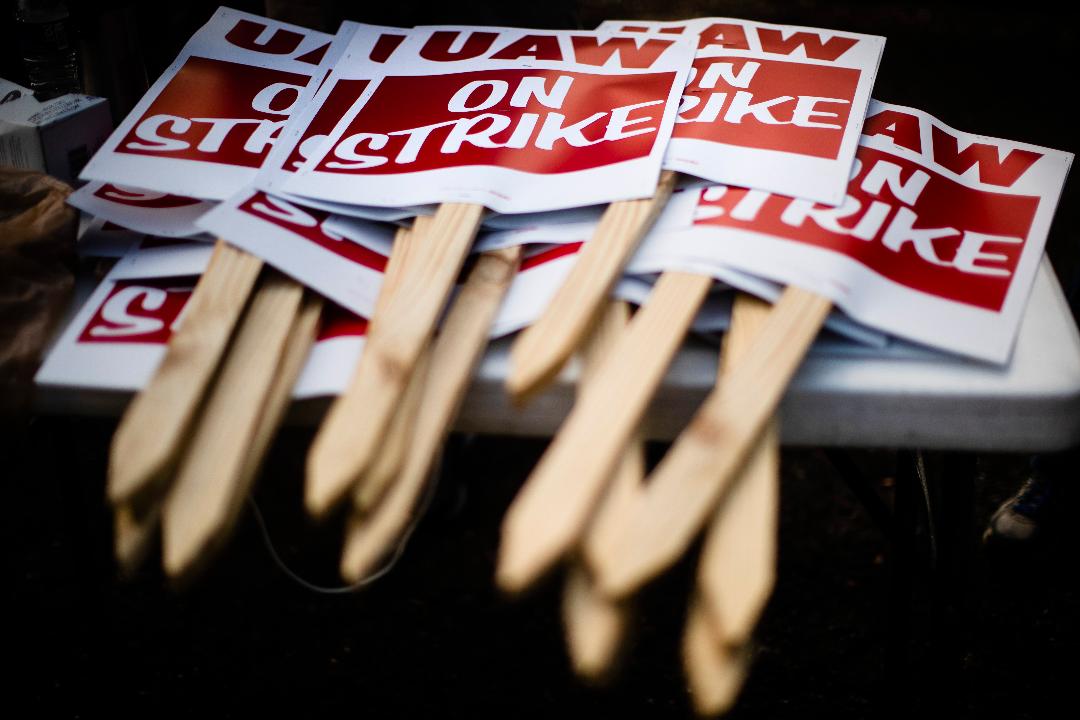GM strike: Who wins if autoworkers don't return to assembly lines soon?
As a strike by United Auto Workers members at General Motors stretches into its third day, the stakes are climbing for the carmaker, the union and even some politicians.
GM faces losses of at least $77 million a day by some estimates, while the UAW exposes itself to media scrutiny over corruption allegations that even touch union president Gary Jones. Federal agents executed search warrants last week at Jones' home as Region 5 Director Vance Pearson was charged with embezzlement.
Meanwhile, President Trump has inserted himself into GM's North America decisions since long before the strike, and his stance on the issue could affect how key voting blocs see him.
"To the extent the strike is seen as union leadership who just got indicted trying to change the topic, there's a chance for the president to split members from union leaders," Republican strategist Bruce Mehlman told FOX Business. "While the UAW leadership endorsed Hillary Clinton in 2016, President Trump did better with union members than any Republican since the Reagan landslide of 1984."
'Leadership is very compromised'
Union leadership can't afford to make the strike political because of scandal, Daniel DiSalvo, political science chair at the City College of New York, told FOX Business.
"In this case, the union leadership is very compromised. … They are not exactly in the position of taking the moral high ground on much of anything at the moment," DiSalvo said.

FILE - In this July 16, 2019, file photo United Auto Workers President Gary Jones speaks during the opening of their contract talks with General Motors in Detroit. A strike against General Motors looms large with just over a day left until the United
The Wall Street Journal's editorial board on Tuesday accused UAW of trying to justify its existence through the strike because of the proliferation of non-unionized manufacturing jobs with comparable pay.
"UAW leaders have rejected [GM's] offer but are vague about what they want beyond a faster phase-out of a two-tier wage structure and fewer temporary workers. Their main goal seems to be to rally workers, especially newer hires with less loyalty to the union, as they try to stanch a membership decline amid the spiraling corruption investigation," the board wrote.
What matters to swing-state voters
Issues like the trade war with China will probably have bigger repercussions for Trump in swing states like Michigan, which is home to several facilities where UAW workers are on strike, DiSalvo said.
One concern is that all the uncertainty on trade will lead businesses and shoppers to hold off on spending in hopes of waiting out the tumult. Businesses say they have seen inklings of such behavior, which, if it accelerates, could lead to a self-fulfilling cycle where weaker sales for companies push them to cut back on hiring. That could lead in turn to even weaker spending and do more damage to the economy.
"A lot of much bigger factors are probably going to shape what the Midwestern vote is going to look like. The GM strike, presuming it doesn’t drag on… will be something of a distant memory by the time we get to 2020," DiSalvo said.
CLICK HERE TO READ MORE ON FOX BUSINESS
He described Trump's stands on trade as a "double-edged sword."
"Organized labor is the most hostile to free trade, and Trump is closer to their positions. On the other hand, the trade dispute with China has a negative impact on a number of businesses and agricultural interests throughout the Midwest," DiSalvo said.
If the strike hurts the economy, that hurts Trump's 2020 chances, and picking a side is risky, too, Mehlman said. For now, Trump is sticking to the talking point that he hopes the strike is a "quick one."
The Associated Press contributed to this report.




















